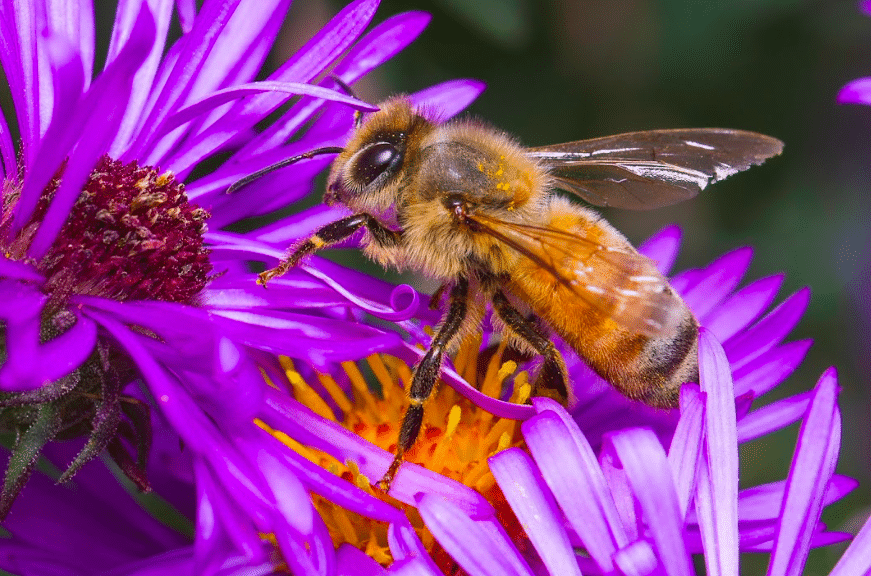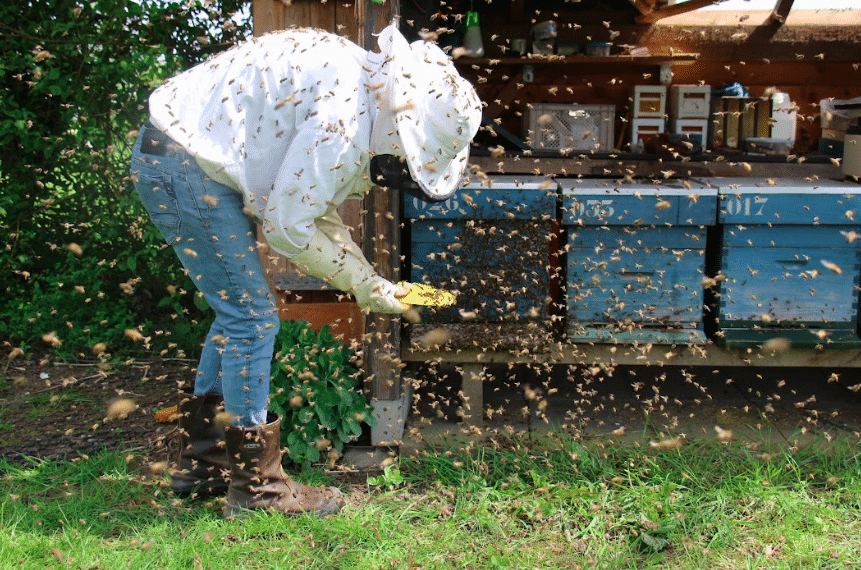Some people think of bees as little more than tiny insects that fly from flower to flower and produce honey. In reality, the future of the planet and the maintenance of global biodiversity depend on this tiny animal. What would the world be like without bees? Why are bees so important and what can be done to protect them?
Honeybees are very important insects for human beings and the planet. More than 70% of the available foods depend on pollination, an activity that bees perform on a daily basis. Apples, pears, citrus fruits, cherries, apricots, watermelons, plums, melons, almonds, courgettes, carrots, cabbage, onions, and garlic are just some of the foods that would not exist without bees.
But that is not all. Some crops do not rely solely on bees for pollination, but if it is these insects that transport pollen from one flower to another, the resulting crops can become richer and more abundant. Moreover, it should not be forgotten that they also play a central role in the process of creating new horticultural plant species. Bees also support the pollination of forage grasses and flowers such as clover and medicinal herbs, which are essential for feeding livestock. Without bees, one could not drink coffee or eat chocolate.
Bees are also very important for the environment in general. Almost 90 per cent of wild species and plants in nature depend on pollinators to reproduce and spread, an activity that is becoming increasingly central due to the disappearance of other wild pollinators. Considering that there are around 350,000 species of wild plants and 200 species of cultivated plants in the world, it is clear how critical and fundamental the impact of this small insect is for the conservation of the planet, biodiversity, and ecosystems. Data collected by the agro-tech start-up 3Bee, which develops remote monitoring systems for beehives, show that the number of bees has declined by more than 30% by 2021
But what does biodiversity mean?
Biodiversity can be defined as the richness of all life on Earth, including plants, animals, microorganisms, fungi, and biotic agents. In general, it is all the variety of life that characterises the planet. The different ecosystems that exist are deeply interconnected and are made up of complex relationships and interactions between the environment and symbiotic communities of organisms. Therefore, bees, as well as pollinators in general, provide routine services that regulate ecosystems while conserving biodiversity itself.
Bees are important in understanding the health of their environment. As they fly from flower to flower and collect nectar, pollen, beeswax, water and propolis, they are also able to intercept pollutants in the environment that could cause the death of the hive itself. For these reasons, an environment where bees thrive is considered a healthy environment where humans can also live well.
However, environmental pollution is not the only problem honeybees face. Climate change, depletion of natural habitats, diseases, parasites, and overuse of pesticides are constant threats to their survival and well-being. Many wild and solitary bees are already threatened with extinction, but even the most common honeybees are not doing well. Their main threats can be divided into three main categories:
- Climate change: temperature fluctuations and climatic deviations can have disastrous consequences for the lives of honeybees.
- Pesticides: some of the pesticides used in agriculture, neonicotinoids in particular, not only disrupt the nervous system of some insects, but also cause their death.
- Intensive agriculture: monoculture drastically reduces the variety of plants and flowers, which are fundamental resources for their survival.
It is thanks to the hard work of beekeepers that the situation is not catastrophic. By taking care of the hive, beekeepers protect the health and survival of bees both by defending them from pests and by supporting them during the most difficult periods caused by extreme weather conditions. The figure of the beekeeper is fundamental for these insects, but carrying out this profession has become increasingly difficult. In this difficult landscape, it is possible, in spite of everything, to make a difference even on an individual basis. There are methods and small tricks that can be crucial in the fight against the disappearance of bees.
By adopting a hive with Bee the Change you protect the bees and support the country’s virtuous beekeeping sector at the same time, which takes care of the well-being and survival of these insects every day. And in this way you take care of the whole planet.

